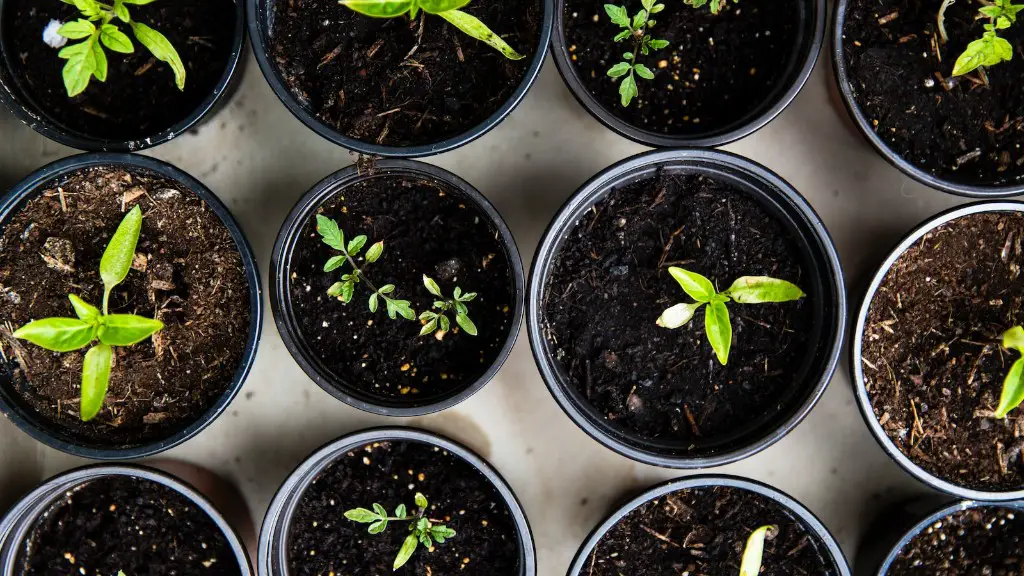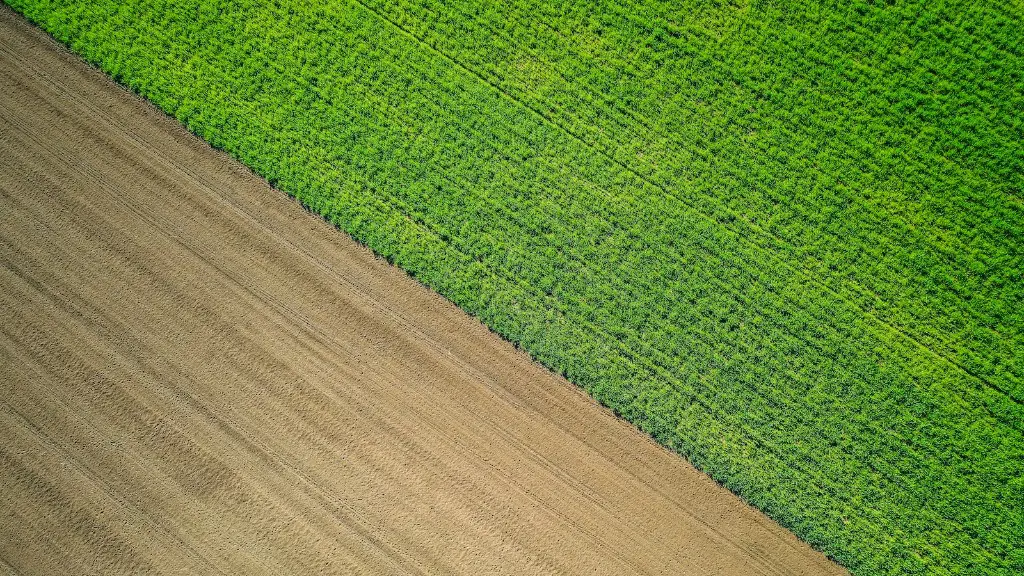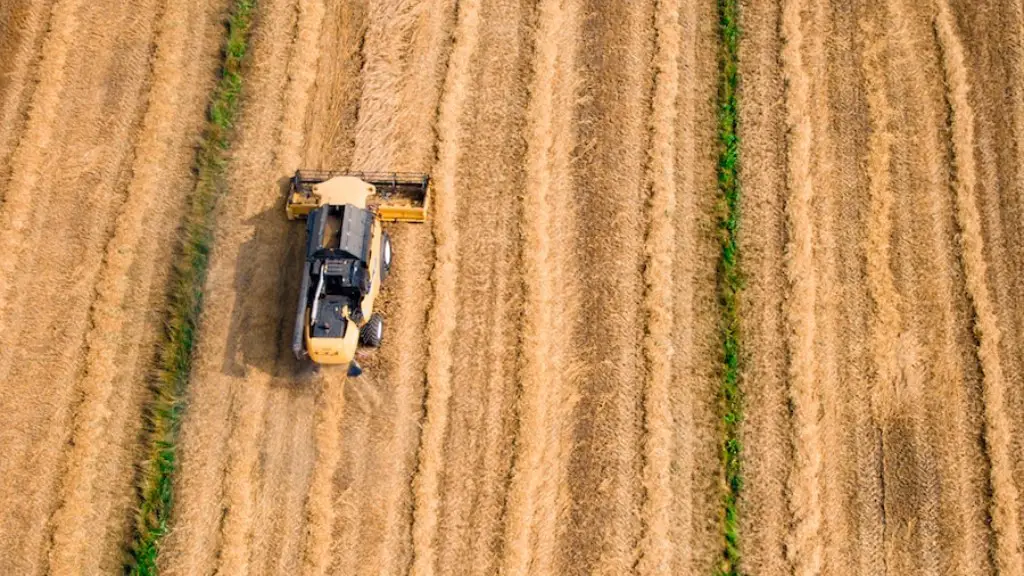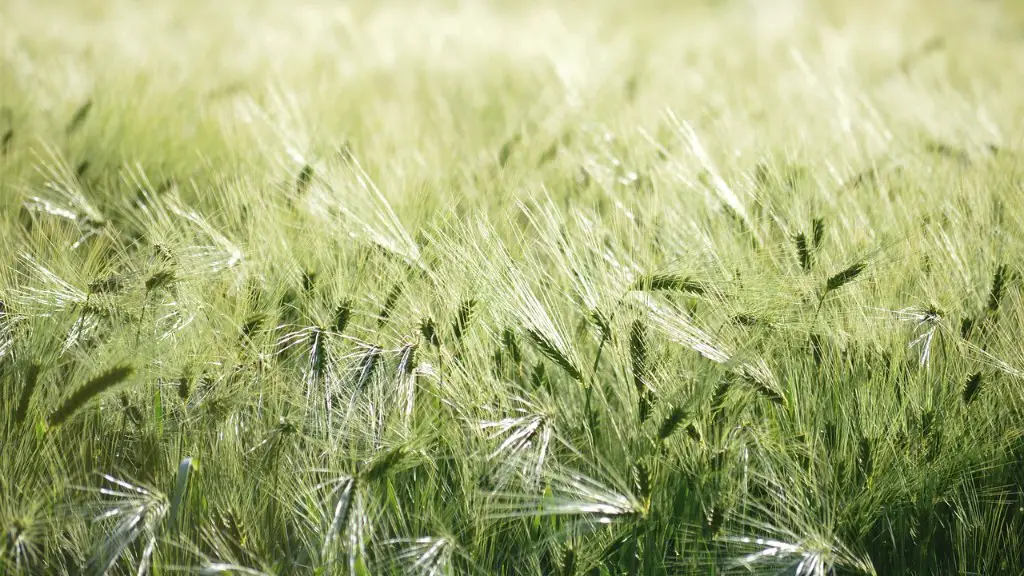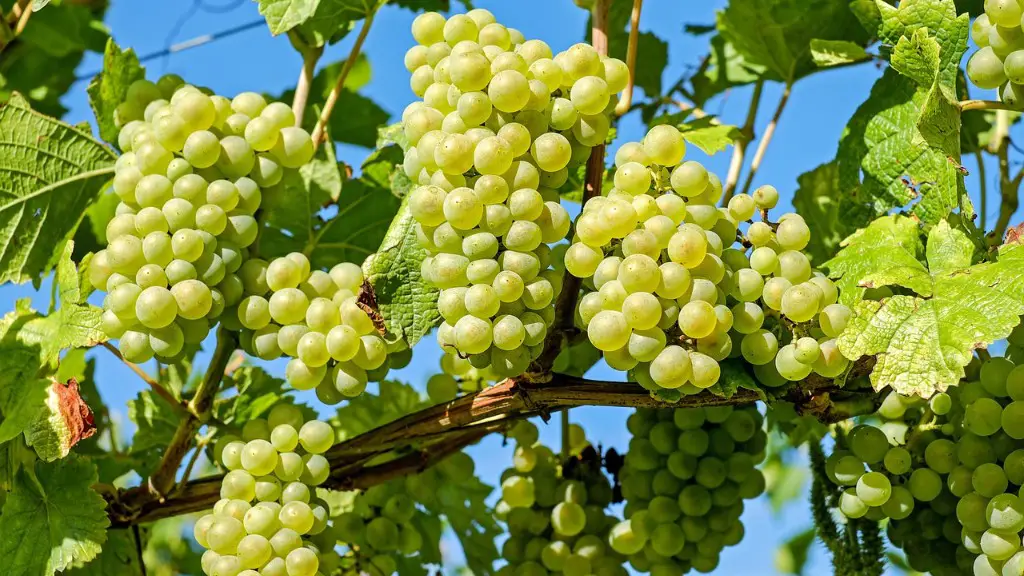Since the dawn of the Industrial Revolution, humanity has been warming the planet. This is primarily due to the burning of fossil fuels, such as coal and oil, which releases greenhouse gases into the atmosphere. These gases form a “blanket” around Earth that trap energy from the sun. This trapped energy makes the Earth’s atmosphere warmer, on average. It is now very likely that human-caused climate change is making the Earth warmer than it would be naturally.
Over the past few decades, there has been a shift from small, family-owned farms to large, industrial farms. This shift has had a big impact on the way we grow food and the amount of greenhouse gases that are released into the atmosphere.
Industrial agriculture is a system of farming that uses large machines, chemicals, and other technologies to increase yields. This type of farming can have a big impact on the environment, both in terms of the amount of greenhouse gases that are released and the amount of water and land that is used.
In terms of climate change, industrial agriculture is responsible for a significant share of greenhouse gas emissions. According to a report from the Food and Agriculture Organization of the United Nations, the agricultural sector is responsible for around 24% of
The greenhouse gases produced by industrial agriculture are a major contributor to climate change. The clearing of land for farming, the burning of fossil fuels to power farm machinery, and the methane produced by livestock all release greenhouse gases into the atmosphere. These gases trap heat and cause the Earth’s temperature to rise, leading to the myriad of problems we now associate with climate change.
How does industrial farming contribute to climate change?
Factory farms are a huge problem for the environment. They produce methane and nitrous oxide, which are both very damaging to the atmosphere. In addition, these farms produce a huge amount of manure each year, which is not regulated by any government agency. This manure can leach into the ground and contaminate water supplies. It can also release harmful gases into the air, which can contribute to air pollution.
The industrial agriculture system is not sustainable. It consumes fossil fuel, water, and topsoil at unsustainable rates and contributes to numerous forms of environmental degradation, including air and water pollution, soil depletion, diminishing biodiversity, and fish die-offs.
How much does the agriculture industry contribute to climate change
The agricultural sector is responsible for a significant amount of greenhouse gas emissions, which contribute to climate change. The sector is also responsible for producing the food that we need to feed the planet. There is a trade-off between reducing emissions from agriculture and producing enough food to meet the needs of the world’s population. Reducing emissions from agriculture will require changes in land use and farming practices. It is possible to produce food in a way that emits less greenhouse gas, but it will require a concerted effort from the agricultural sector.
Over the past few decades, there has been a growing awareness of the need to address climate change. One way to do this is to reduce greenhouse gas emissions from agriculture. Another is to increase the amount of carbon sequestration, which is the process of storing carbon dioxide in the atmosphere.
There are a number of ways that farm operators can change production practices or land use to increase the carbon stored in soil or vegetation. For example, they can switch to no-till or low-till farming methods, plant cover crops, or use more efficient irrigation methods. All of these practices can help to reduce greenhouse gas emissions and help to remove carbon dioxide from the atmosphere.
Why are factory farms bad for the environment?
At its root, factory farming is one of the main drivers of deforestation and water scarcity. The demand for animal products has led to the clearing of vast tracts of forest land, which in turn has led to a decline in the overall health of the planet. In addition, factory farming is responsible for methane and nitrous oxide pollution, which are both major contributors to climate change. As the world becomes increasingly aware of the need to protect the environment, it is clear that factory farming is not sustainable in the long term. Ultimately, it is up to each individual to decide whether they want to support this industry or not.
Industrial agriculture is the current dominant food production system in the United States. This system has led to several types of costs, including depletion of water resources, erosion, and loss of biodiversity.
How does industrialized agriculture contribute to greenhouse gas emissions?
On-farm emissions are a major source of greenhouse gases. Methane emissions from manure, nitrous oxide emissions from manure and soil cultivation, and carbon dioxide emissions from crop residue decomposition and fossil fuel combustion are all major sources of on-farm emissions. Reducing on-farm emissions will require a concerted effort to reduce all of these sources.
Agriculture definitely has an impact on the environment, both good and bad. On the plus side, agriculture can help soil erosion and water pollution. However, it can also contribute to climate change and deforestation.
What is the biggest contributor to climate change
Fossil fuels are by far the largest contributor to global climate change, accounting for over 75 per cent of global greenhouse gas emissions and nearly 90 per cent of all carbon dioxide emissions. As greenhouse gas emissions blanket the Earth, they trap the sun’s heat. This trapped heat makes the Earth’s atmosphere warm, and disturbs the Earth’s climate. It is predicted that if we do not take action to reduce our reliance on fossil fuels, the Earth will warm by an additional 2°C by the end of the century. This would have devastating consequences for our environment and our society.
Fossil fuels are a major source of greenhouse gas emissions in the United States. Burning coal, oil, and natural gas releases carbon dioxide and other pollutants into the atmosphere. These emissions contribute to climate change, harming public health and the environment.
There are many ways to reduce our reliance on fossil fuels and make the switch to cleaner energy sources. We can use energy more efficiently, invest in renewable energy, and electrify our transportation system. Taking these steps will help reduce emissions, create jobs, and protect our planet for future generations.
What industries contribute to climate change?
Electricity Generation and Heat Production:
Electricity generation and heat production are responsible for approximately 28% of the world’s greenhouse gas emissions. Coal, natural gas, and oil are the primary fuels used in this sector, and emissions come from the burning of these fossil fuels.
Climate change will have an impact on agriculture, through changes in average temperatures, more extreme weather events, and changes in pests and diseases. These changes will impact crops, soil erosion, and the nutritional quality of some foods. Farmers will need to adapt their practices to account for these changes in order to maintain food production.
Why is industrial farming bad
Industrial agriculture is having a major negative impact on our planet. It is a leading cause of human-related emissions fueling climate change, a major source of both water and air pollution, and the principal cause of antibiotic resistance and pesticide toxicity.
This type of agriculture relies heavily on fossil fuels, which release harmful greenhouse gases into the atmosphere and contribute to climate change. It also uses large amounts of water, which can lead to water pollution when chemicals and other pollutants from the farms run off into rivers and lakes. And finally, the widespread use of antibiotics and pesticides in industrial agriculture has led to the development of antibiotic-resistant bacteria and pesticide-resistant pests, respectively. This is a huge problem because it means that we are losing our ability to effectively fight diseases and pests.
It is clear that industrial agriculture is not sustainable and is having a major negative impact on our environment. We need to find more sustainable ways to produce food if we want to protect our planet and our health.
Factory farms generate a large amount of air pollution, primarily in the form of hydrogen sulfide, ammonia, and methane. These emissions can have a significant impact on local air quality, particularly in areas with large concentrations of livestock. The US Department of Agriculture estimates that confined farm animals generate more than 450 million tonnes of manure annually, 3 times more raw waste than generated by Americans. Manure can contain a variety of pollutants, including nitrogen and phosphorus, which can contribute to the formation of ground-level ozone and fine particulate matter. In addition, factory farms often use open-air manure lagoons, which can release harmful gases into the atmosphere and pose a risk to public health.
Do factory farms contribute greatly to air pollution?
Factory farms are known to emit a large number of air pollutants, including hydrogen sulfide, ammonia, and particulate pollution. These pollutants can cause a variety of respiratory problems for nearby residents, as well as contribute to acid rain and regional haze.
Industrialized farming is one of the leading causes of environmental damage around the world. It contributes to greenhouse gas emissions, pollution, and the destruction of wildlife habitat. Each year, the cost of this damage to the environment is estimated to be around $3 trillion.
Conclusion
Climate change is one of the most significant challenges facing industrial agriculture. Industrial agriculture contributes to climate change in a number of ways. The most significant way is through the release of greenhouse gases such as carbon dioxide, methane, and nitrous oxide. Greenhouse gases trap heat in the atmosphere and cause the Earth’s average temperature to rise. Industrial agriculture also contributes to climate change through the way it alters the land. Deforestation, for example, releases carbon dioxide into the atmosphere and disturbs the Earth’s natural ability to reflect sunlight, leading to further warming. In addition, the widespread use of chemical fertilizers and pesticides in industrial agriculture can lead to soil and water contamination, which can also contribute to climate change.
The huge carbon footprint of industrial agriculture is responsible for a large proportion of the world’s greenhouse gas emissions. The great demand for meat, milk and eggs from this system means that more land is needed for livestock grazing and growing crops to feed them, leading to deforestation. This in turn contributes to climate change, as trees play an important role in sequestering carbon dioxide.
